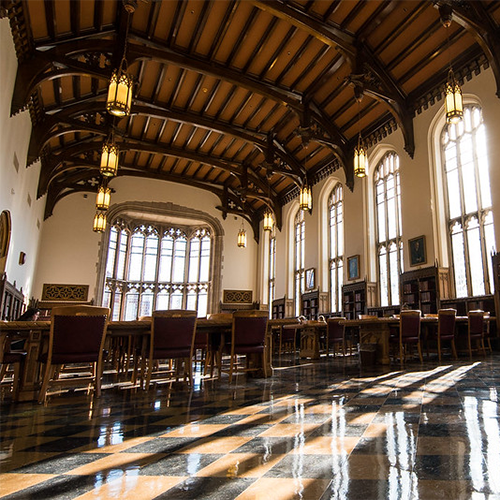Library of Congress Subject Headings (LCSH) are an integral part of the world’s most widely used library indexing tool. Subject terms facilitate searching and many times are used to find important resources on a topic when researching in online library catalogs. Prior to this change, searching a library catalog for “Tulsa Race Massacre” might miss important resources that were only associated with the term “riot.”
The LCSH Change Proposal Task Force, a group of University Libraries information professionals concerned with historically accurate and culturally appropriate naming processes, submitted a proposal to the Library of Congress last year to change the official subject heading of the 1921 attack on Tulsa’s Greenwood District.
“The vision of the task force was to work across University Libraries toward a unified goal, one rooted in social justice, and to employ language in such a way as to create a more accurate description of a horrendous event,” said Todd Fuller, a task force member and curator of University Libraries’ Western History Collections. “The updated subject heading will be used in library catalogs in the U.S. and internationally.”
The Tulsa Race Massacre occurred May 31 through June 1, 1921, when a white mob attacked residents, homes and businesses in Tulsa’s predominantly Black Greenwood neighborhood. The event remains one of the worst incidents of racial violence in U.S. history, and until recently, one of the least known. News reports from the time were largely suppressed or skewed, despite the fact that many people were killed and thousands left homeless.
For the Library of Congress to accept this change, the LCSH Change Proposal Task Force had to produce justification that “massacre” was not only the historically accurate term, but also the predominant term currently in use. To accomplish this, members leveraged previous research and their own skills as information professionals to ultimately cite a variety of sources ranging from existing Library of Congress research guides and congressional documents, to the number of Google searches for “Tulsa Race Massacre” versus “Tulsa Race Riot.”
The task force was also aided by the previous and ongoing efforts of the Tulsa Race Massacre Centennial Commission, the Greenwood Cultural Center, and Karlos Hill, associate professor and chair of the Clara Luper Department of African and African American Studies in the OU College of Arts and Sciences.
“I’m proud of OU Libraries’ pivotal role in petitioning the Library of Congress to change their subject listing from ‘Tulsa Race Riot’ to ‘Tulsa Race Massacre,’” Hill said. “In making this small but significant shift, the Library of Congress is helping to bring forward a more historically accurate perspective of what actually occurred.”
Bailey Hoffner, another task force member and University Libraries metadata and collections management archivist, said, “It’s important to all of us on the task force that we make clear [that] none of our work would have been possible without the efforts of survivors, descendants and members of Tulsa’s Black community. The work of the task force was a small measure of gratitude for the heaviest lift of all – carrying the memory of a thriving Greenwood alongside the memory of the massacre into our public consciousness.”
The impetus for the LCSH Change Proposal Task Force was the members’ shared belief that naming matters: the words used to describe people and events affect perceptions and, in turn, those perceptions have concrete implications for social justice. As such, the members are now working to bring progressive change to similar naming practices, predominantly across subject headings related to the American Southwest.
As part of campus-wide efforts to commemorate the centennial of the Tulsa Race Massacre, University Libraries has an exhibition titled From Tragedy to Triumph: Race Massacre Survivor, which tells the story of the 1921 Tulsa Race Massacre through a combination of compelling photographs and vivid eyewitness accounts from survivors. OU Libraries collaborated with Hill and Mechelle Brown, program coordinator and tour guide at the Greenwood Cultural Center, to produce the exhibit. The exhibit can be experienced in person at Bizzell Memorial Library, 401 W. Brooks St. on the OU Norman campus, or viewed virtually at libraries.ou.edu/content/tragedy-triumph-race-massacre-survivor-stories.
For more information on the University of Oklahoma’s efforts to commemorate the Tulsa Race Massacre, visit ou.edu/tulsa1921.
About the University of Oklahoma
Founded in 1890, the University of Oklahoma is a public research university located in Norman, Oklahoma. OU serves the educational, cultural, economic and health care needs of the state, region and nation. For more information visit www.ou.edu.
About OU Libraries
The University of Oklahoma Libraries is the intellectual crossroads of the university, providing materials and assistance to facilitate knowledge creation. Library services are provided from six locations, including the largest research library in Oklahoma. OU Libraries contains world-class special collections in western history, history of science and Chinese literature translation, as well as branch libraries for fine arts, architecture and geology. For more information, please contact University Libraries at (405) 325-2611 or visit libraries.ou.edu.



